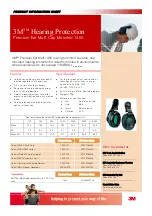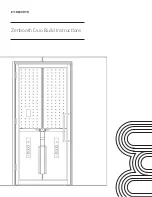
begin playback and/or recording at the same time. Otherwise select “Independent”
to allow the audio channels to play independently — this setting may be desirable if
more than one application needs to access the Delta 66 simultaneously.
DMA BUFFER SIZES: This section specifies the amount of system memory
dedicated to digital audio buffering. Setting a buffer size that is too small may result
in clicks or pops in the audio stream as some data may be lost. Larger buffers cause
slightly more latency but prevent the pops and clicks that might occur with smaller
buffer sizes — the default settings are recommended but you may desire to tweak
these default settings to suit your tastes.
ON THE MAC: The Hardware Settings Page in the Macintosh version of the Delta
Control Panel also contains software switches that allow you to select which Delta
input and output stereo pair will be used by the Sound Manager, if and when you
choose the Delta as the Sound Manager input and output device. If you go to the
Apple menu | Control Panel |Sound and highlight the Delta icon for Sound In and
Sound Out, then your Apple system sounds will be routed to the Delta hardware
output that you have selected here, and Alert Sounds, if you choose to record, will
receive their input from the Delta hardware input that you select here.
You will want to choose the Delta for input and output in the Sound control panel if
your music program does not use ASIO and the Delta ASIO drivers. If you are using
the ASIO drivers (see Mac Software Installation), then leave the Sound control panel
selection to “built-in.” With the Sound control panel set to built-in, these Sound
Manager settings in the Delta Control Panel will have no effect.
The Sound Manager driver limits you to using only one of the Delta 1010 stereo
input pairs for audio input and only one of the stereo output pairs for output. These
do not need to be matched pairs- you can use inputs 1&2 for Sound In and S/PDIF
for Sound Out, for example, or any combination that you choose. The following
screen shot shows the Hardware Settings page on the Mac with the Sound Manager
I/O set to “Analog 1&2” for Input and “Analog 1&2” for Output. Once you have
made a selection, go to the File menu and “Save as Preferences.”
22
















































